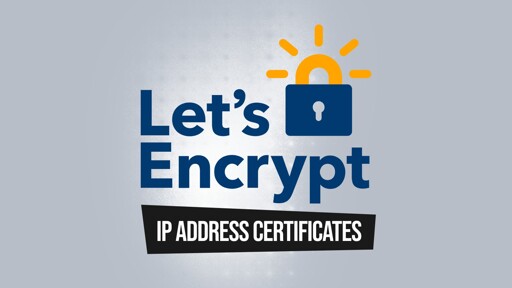Who benefits from this? Even though Let’s Encrypt stresses that most site operators will do fine sticking with ordinary domain certificates, there are still scenarios where a numeric identifier is the only practical choice:
Infrastructure services such as DNS-over-HTTPS (DoH) – where clients may pin a literal IP address for performance or censorship-evasion reasons.
IoT and home-lab devices – think network-attached storage boxes, for example, living behind static WAN addresses.
Ephemeral cloud workloads – short-lived back-end servers that spin up with public IPs faster than DNS records can propagate.



Currently before establishing an encrypted connection to a webserver the domain is sent to the webserver unencrypted so that the server can choose the appropriate certificate to use for encryption. That is called SNI, Server Name Indication.
Of course that’s a privacy risk. There are finally protocols to fix this but they aren’t very widespread and depend on DNS over HTTPS.
I think issuing certificates based on the IP and sending the domain name encrypted based on that certificate could have fixed this issue ages ago.